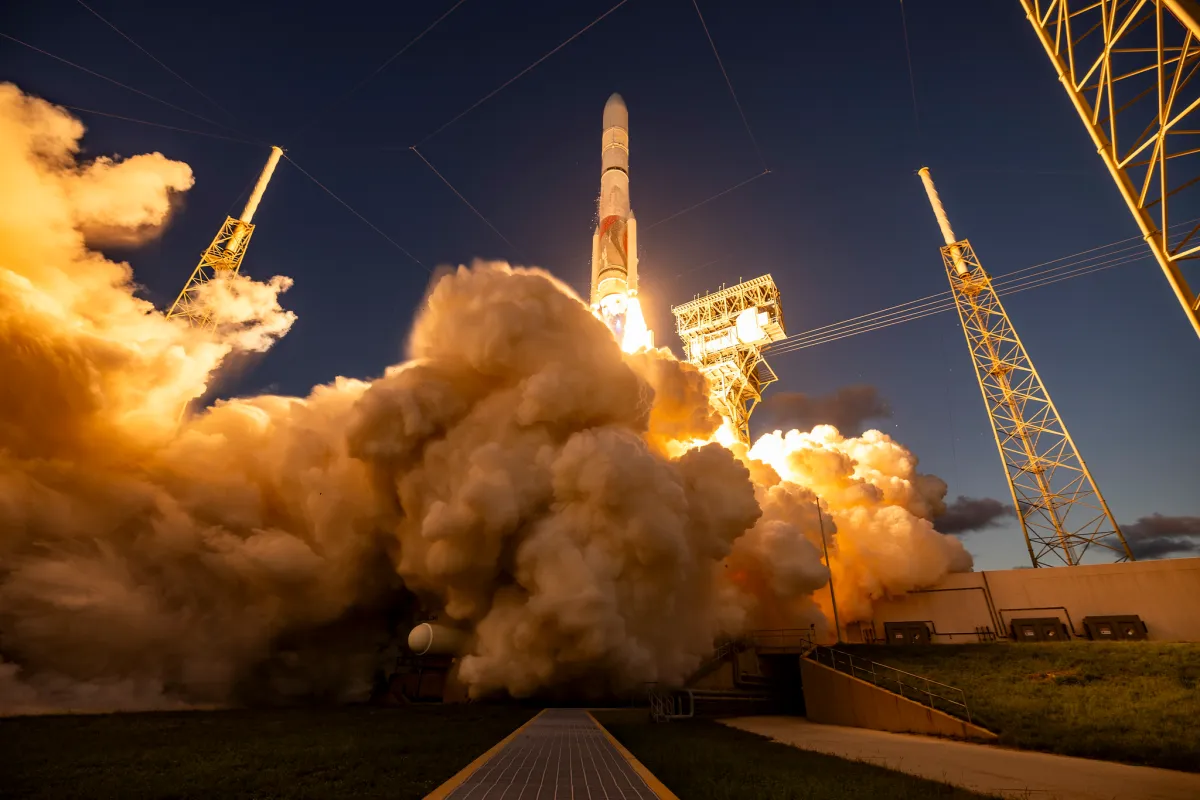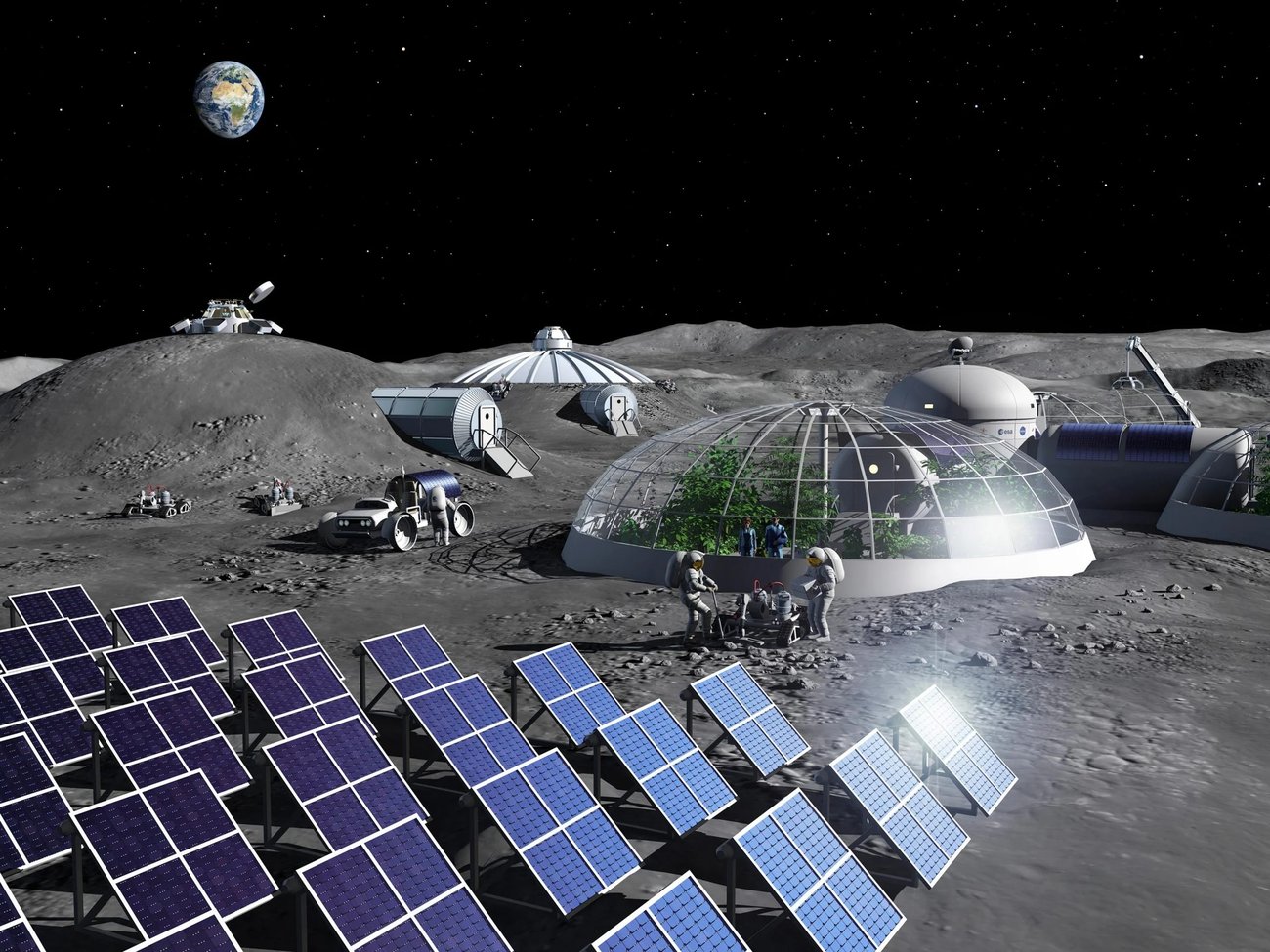03/28/2025 | Welcome to our roundup of top SpaceNews stories, delivered every Friday! This week, Vulcan gets national security clearance, China pursues astrobiology research missions, Europe puts out a call for new launchers, and more. | Our Top Story | | |
|
|
|
| |  | By Jeff Foust, March 26, 2025
| The U.S. Space Force has certified United Launch Alliance's Vulcan Centaur rocket, allowing that vehicle to conduct national security missions.
The Space Force's Space Systems Command announced March 26 it completed the long-awaited certification of Vulcan after analyzing data from the rocket's two certification launches in January and October of 2024 as well as other reviews of the rocket's development.
"Assured access to space is a core function of the Space Force and a critical element of national security," Space Force Brig. Gen. Kristin Panzenhagen, the program executive officer for Assured Access to Space at Space Systems Command, said in a statement. "Vulcan certification adds launch capacity, resiliency and flexibility needed by our nation's most critical space-based systems." Read More |  | Other News From the Week | CIVIL | China unveils planetary exploration roadmap targeting habitability and extraterrestrial life
China is charting a long-term deep space strategy centered on planetary habitability and the search for extraterrestrial life, according to a newly revealed slide titled "habitability and search for extraterrestrial life — guiding the future development of China's planetary exploration," that was shared on Chinese social media. The slide, shared by the country's Deep Space Exploration Laboratory, a national-level research institution under the China National Space Administration, outlines a number of planned and potential missions, many with astrobiological implications. Read More
NASA terminating $420 million in contracts
In a statement to SpaceNews late March 24, NASA press secretary Bethany Stevens confirmed a post by the Department of Government Efficiency (DOGE) that NASA had terminated about $420 million in "unneeded" contracts. Read More
California commits $95 million to purchase of satellite methane data California Gov. Gavin Newsom announced the three-year, $95 million contract awarded by the California Air Resources Board to nonprofit Carbon Mapper to process and disseminate data gathered by Planet Tanager hyperspectral-imaging satellites. Read More
GAO rejects TraCSS contract protest
In a decision publicly released March 26, the Government Accountability Office rejected a protest by Kayhan Space regarding a contract that the office awarded to Slingshot Aerospace in November 2024 for the "presentation layer," or web interface, for the Traffic Coordination System for Space. Read More | | | Loving SpaceNews This Week? Check out SpaceNext: AI, where we look at how artificial intelligence is becoming integral to the space industry, and how companies and agencies are using it for their missions. | | | MILITARY | Space Force gets $40 million boost for commercial space services
Congress earmarked $40 million for commercial surveillance, reconnaissance and tracking services in the recently passed fiscal year 2025 continuing resolution spending bill. Col. Richard Kniseley, director of the Space Force's Commercial Space Office, said the funding represents a vote of confidence in the service's efforts to tap the commercial space market. Read More
Companies in the Space Force commercial reserve program will not be publicly identified
The U.S. Space Force plans to keep the names of commercial companies participating in its new space reserve program under wraps, aiming to protect them from potential adversary threats as commercial satellites play a growing role in military operations. Col. Richard Kniseley said companies signing agreements under the Commercial Augmentation Space Reserve program can disclose their participation but are not required to. Read More | | | LAUNCH | ESA issues call for proposals for European Launcher Challenge
The European Space Agency has officially kicked off a competition to support new launch vehicles, but the winners, if any, won't be known for at least eight months. ESA formally published a call for proposals, known by the agency as an invitation to tender, for the European Launcher Challenge March 24. Proposals are due on May 5, with up to 169 million euros ($183 million) available to each selected vehicle. Read More
Rocket Lab, Stoke Space join National Security Space Launch competition
The U.S. Space Force has tapped Rocket Lab and Stoke Space to compete for national security launch contracts, expanding the roster of private firms vying for a share of a multibillion-dollar program designed to bolster military access to space. The Space Systems Command, the service's procurement arm, announced March 27 that Rocket Lab and Stoke Space will join Blue Origin, SpaceX, and United Launch Alliance in the National Security Space Launch Phase 3 Lane 1 program. Read More | | |
|  | OPINION |
|  | By Rick Tumlinson, March 28, 2025
| For decades, U.S. and international space efforts have been choked by a single-pipeline mentality: one central program at a time, dictated and distorted by political cycles, implemented through a bureaucracy that moves at a glacial pace.
This isn't just inefficient — it's undemocratic. It explains why the U.S. human space program has moved at tectonic speeds since Apollo. If NASA is the sole entity managing space for the American people, and political realities demand one flagship program at a time, then of course progress is slow. It's important to get this if you want to understand why we're now in a so-called race with China to put the next humans on the moon. Had the American space program taken a better approach, there would be no race. We'd be inviting the new arrivals to tea instead. Read More
Data and artificial intelligence: the fuel behind space discovery
By Victoria Da Poian and Eric Lyness
Balancing national security and international cooperation in the competitive era of commercial space By Tejpaul Bhatia
| SpaceNews is committed to publishing our community's diverse perspectives. Whether you're an academic, executive, engineer or even just a concerned citizen of the cosmos, send your arguments and viewpoints to opinion@spacenews.com to be considered for publication online or in our next magazine. The perspectives shared in these op-eds are solely those of the authors. | | |  | Publish your press release with SpaceNews' premier press release service and start seeing results today.
| Latest Press Releases |
|
|
|
Sponsored Post |  | By the European Commission
Over the past decade, the European Commission has invested significantly in space research in order to strengthen Europe's capabilities in critical technologies that have traditionally been sourced from outside the European Union (EU). Since 2009, this mission has been supported through successive framework programmes, the latest one being Horizon Europe, the EU's flagship research and innovation programme for the period 2021-2027. Within Horizon Europe, the EU Space Research and Innovation (R&I) Work Programme has a dedicated topic covering Critical Space Technologies aimed at building stronger, resilient EU-based space capabilities. Read More
| | |
|
| | | What's New With SpaceNews? | Don't forget to sign up for our next webinar! |  | Join us March 24 for an exclusive one-on-one live interview with Aarti Holla-Maini, director of the United Nations' Office for Outer Space Affairs. With decades of experience shaping global space policy — including leadership roles at NorthStar Earth & Space and the Global Satellite Operators Association — she understands the challenges and solutions that may be necessary for managing space sustainability. |
|
| | |
|
|
No comments:
Post a Comment